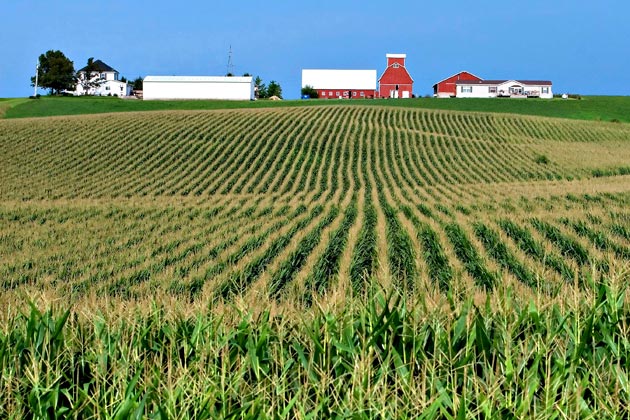Farmers in West account for 43% of total farmer suicides.
June 14, 2017

Shedding light on a very real and serious problem in agriculture, a new study from the University of Iowa found that the number of suicides among farmers and farm workers in the U.S. has remained stubbornly high since the end of the 1980s farm crisis, much higher than workers in many other industries.
The study examined suicide and homicide rates among farmers and agricultural workers across the country from 1992 to 2010 and found that 230 farmers committed suicide during that time, with an annual suicide rate that ranged from 0.36 to 0.95 per 100,000 farmers. That is well above the rate for workers in all other occupations, which never exceeded 0.19 per 100,000 during the same time period.
The rate during 1992-2010 is not as high as in the 1980s, when more than 1,000 farmers took their own lives because they were losing their farms to foreclosure, but study co-author Corinne Peek-Asa, professor of occupational and environmental health in the University of Iowa College of Public Health, said the new numbers still are excessive.
"Occupational factors such as poor access to quality health care, isolation and financial stress interact with life factors to continue to place farmers at a disproportionately high risk for suicide," she said.
The survey found that farmers in the West were more likely to commit suicide, comprising 43% of total farmer suicides, followed by the Midwest (37%), South (13%) and Northeast (6%).
As in the 1980s, financial issues continue to be the cause of some suicides, especially during economic crises or periods of extreme weather, Peek-Asa noted. In addition, farmers face an array of other stresses that put them at high risk for suicide, such as physical isolation from a social network that may lead to loneliness, physical pain from the arduous work of farming and a lack of available health care resources in rural areas, especially for mental health care.
Other research also suggests that exposure to chemical insecticides causes depression in some people, Peek-Asa said.
She noted that farm culture often dictates that farmers who have physical or psychological needs should just “suck it up” and go about their work.
Last, many farmers own weapons, so the rifle they use to chase off coyotes, for example, can easily be turned on themselves, Peek-Asa explained.
Farmers are different from workers in most other fields in that their work is a significant part of their identity, not just a job, she said. When the farm faces difficulties, many farmers see it as a sign of personal failure.
"They struggle with their ability to carve out the role they see for themselves as farmers. They can't take care of their family; they feel like they have fewer and fewer options and can't dig themselves out," Peek-Asa explained. "Eventually, suicide becomes an option."
Peek-Asa suggested policy solutions that include improving rural economies, increasing social networks in rural areas and improving access to health care and mental health services in rural areas.
Beyond that, she said improving the quality of life in rural communities is also important.
You May Also Like

.png?width=300&auto=webp&quality=80&disable=upscale)

